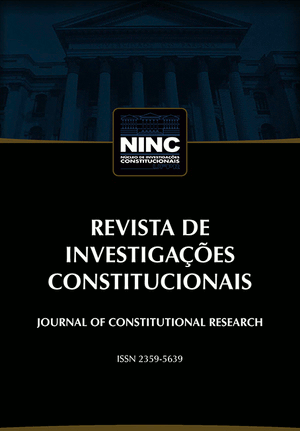Abstract
At the intersection between telematic secrecy and criminal and administrative procedural law, the Brazilian Federal Supreme Court built a prevailing argument to rule out questions of legality of certain evidence or means of obtaining evidence: the Federal Constitution protects “communications of data and not data itself “ - to mean that it only protects communications in flow, not stored (static) and, today also, that it only protects communications content and not other records and data. Through a review of literature and case law, this article aims to demonstrate how this argument emerged, how it is applied inconsistently and how it overrides relevant questions about privacy in the digital age. It maintains that the STF needs to rescue a substantive thesis on privacy and reaffirm the State’s burden to justify the use of force and that judges should look at the context and our social practices when deliberating on such issues.
Keywords:
secrecy; privacy; data; Brazilian Supreme Federal Court; digital age
